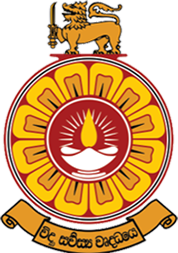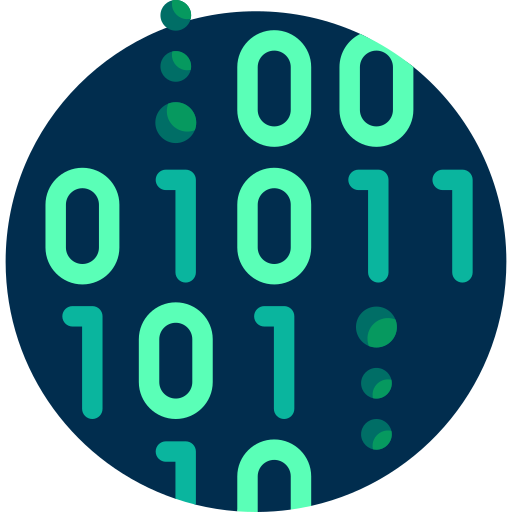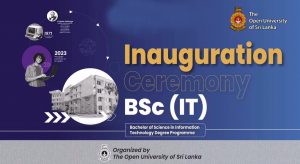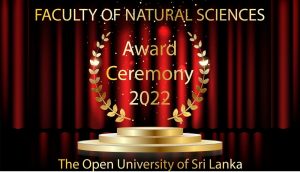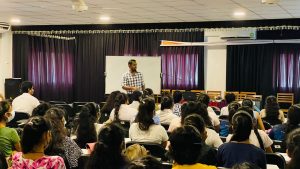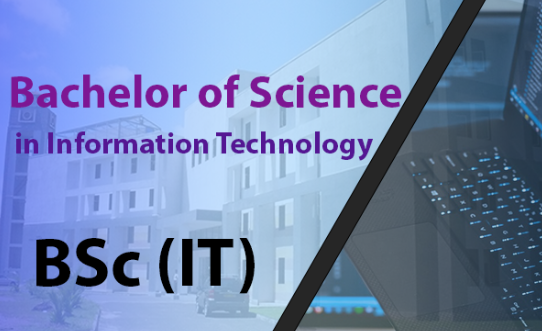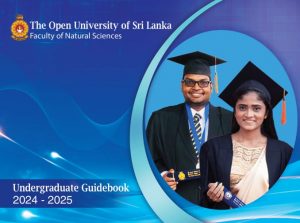



The Faculty of Natural Sciences has over 35 years of experience in delivering science degree programmes adopting the Open and Distance Learning (ODL) methodologies. The Faculty functions under the leadership of the Dean, who is the administrative and the academic head. It consists of six Departments: Botany, Chemistry, Computer Science, Mathematics, Physics and Zoology. In keeping with the mission and objectives of the Faculty, it currently offers 29 programmes of study ranging from Certificate to Postgraduate level, as well as stand-alone courses and short courses. The main undergraduate programmes offered by the Faculty are BSc degree programme and BSc (Hons) degree programmes with nearly 5,000 students.
The programmes of study offered by the Faculty of Natural Sciences are designed to develop competency in the area of specialisation, the soft skills and the technology needed for the 21st Century world of work. Further, learners are given several opportunities to enhance their career paths and continuously instil a passion for lifelong learning.
Enrolling to the BS Degree programme in the Faculty of Natural Sciences enables you to make a choice at the end of level 4 (second year) to continue in the OUSL or join up with the BSc Degree in the University of Essex, UK through progression link. At the completion of level 5 (third year) if you are eligible to register for a Special (Hons.) Degree in the OUSL, you will be able to gain direct entry to the MSc programmes in University of Essex, UK. Read More
Upcoming Programmes
- Duration : 1 year
- Course Fee : Rs 1020/= per credit (LKR 30,600/= per course)
- Closing Date for Applications : June 30, 2024
- Duration : 3 years
- Course Fee : Approximately LKR 300000/= only for 90 credits. [LKR. 2870/= per credit]
- Closing Date for Applications : September 16, 2024
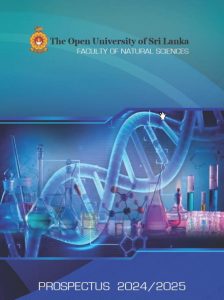
Prospectus 2024/2025
![]() The study system of the OUSL is based on open and distance learning methods. It is different to the conventional study system that most of you are familiar with. Regular attendance at the University is not required and is therefore well suited for those of you who are employed or engaged with other commitments.
The study system of the OUSL is based on open and distance learning methods. It is different to the conventional study system that most of you are familiar with. Regular attendance at the University is not required and is therefore well suited for those of you who are employed or engaged with other commitments.
Student learning is facilitated through carefully prepared printed course material suitable for self-learning. Printed course material is supplemented with audio visual and online learning material. Your progress in courses is evaluated at different time intervals using a variety of assessment methods such as assignment tests and final examinations
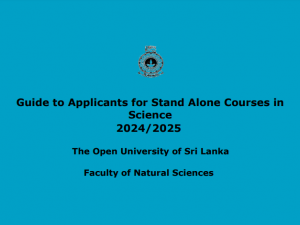
Guide to Applicants for Stand-Alone courses in Science 2024/2025
The “Guide to Applicants” provides you information you would require to enroll in the stand-alone courses offered by the Faculty of Natural Sciences, The Open University of Sri Lanka.
Enrolling in stand-alone courses will enable you to obtain knowledge in specific areas without having to register for a complete programme of study.
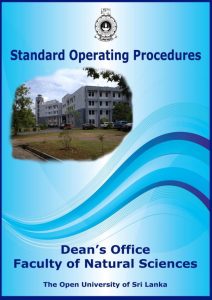
Standard Operating Procedures
- Mission and Objectives of the Faculty of Natural Sciences
- Organogram of the Faculty of Natural Sciences
- Contact Information
- The Study System
- Preparing Activity Schedule of the academic year
- etc.
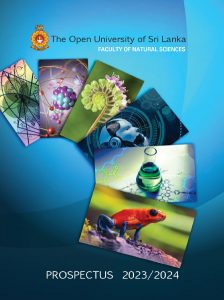
The Study System of the University
The study system of the OUSL is based on open and distance learning methods. It is different to the conventional study system that most of you are familiar with. Regular attendance at the University is not required and is therefore well suited for those of you who are employed or engaged with other commitments.
Student learning is facilitated through carefully prepared printed course material suitable for self-learning. Printed course material is supplemented with audio visual and online learning material. Your progress in courses is evaluated at different time intervals using a variety of assessment methods such as assignment tests and final examinations
